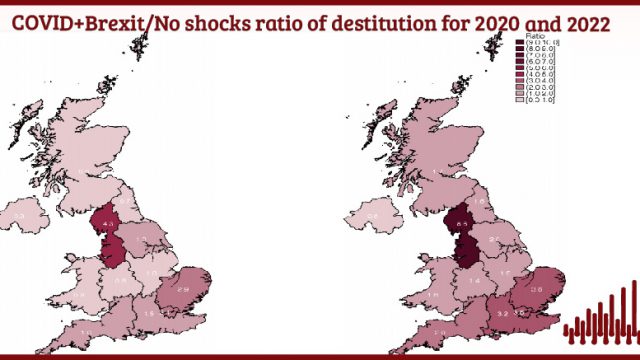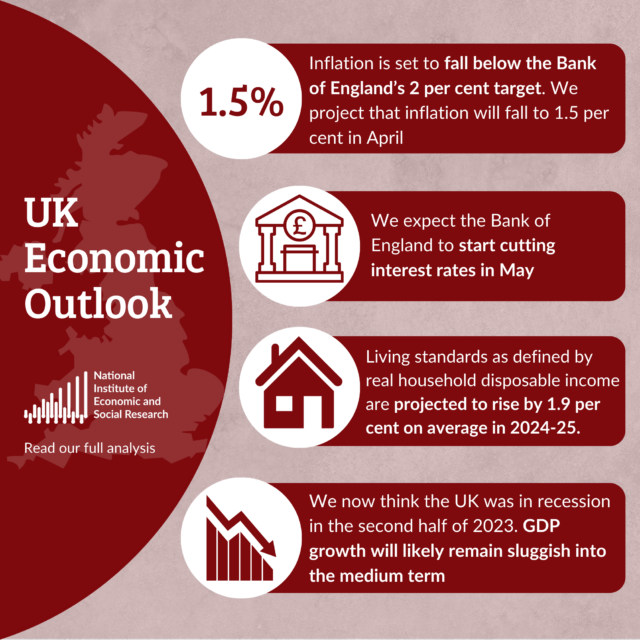Is Brexit the Antidote to UK Productivity Failure?
Over most of the period since World War II, UK productivity performance has been disappointing. Two episodes stand out, namely, the acute phase of relative economic decline during the 1950s through the 1970s and the ‘productivity puzzle’, that is the flatlining of productivity since the onset of the financial crisis in 2008.
 Post Date
Post Date
 Reading Time
Reading Time

Over most of the period since World War II, UK productivity performance has been disappointing. Two episodes stand out, namely, the acute phase of relative economic decline during the 1950s through the 1970s and the ‘productivity puzzle’, that is the flatlining of productivity since the onset of the financial crisis in 2008.
Various permutations of supply-side policy have been ineffective or, at worst, seriously counterproductive in improving productivity outcomes, although the period of ‘post-Thatcher consensus’ prior to the crisis did see a considerable improvement in UK productivity growth relative to most European countries.
In a paper in the current issue of the National Institute Economic Review (“Persistent productivity failure in the UK: is the EU really to blame?”), I explore the impact that EEC/EU membership has had and, in the light of this, some implications that Brexit may have for UK productivity.
Economists have had much to say about the long-term direct impact of Brexit on UK productivity, working through effects on trade and FDI as trade costs rise and EU market access is reduced. Typically, these range from an adverse effect on the level of GDP per worker of 4 to 8%, depending on modelling assumptions and the design of Brexit. I do not wish to quarrel with these estimates and, indeed, when I carried out a similar exercise looking at the impact of EEC entry in 1973, I found that the effect after 10 years was to raise the level of UK productivity by 8.6%.
The bottom line of this kind of exercise is to say that Brexit will make relative UK productivity performance worse not better. However, there is another dimension to Brexit that is not considered in these analyses, namely, that it could allow more freedom to reform supply-side policy free of constraints imposed by EU membership and especially by being in the Single Market.
Could the removal of these constraints in a hard Brexit pave the way to a new era of productivity-friendly policymaking and solve the ‘productivity puzzle’? I definitely don’t think so.
It is quite widely agreed that there are serious weaknesses in UK policy, for example, in education and skills, infrastructure, innovation, regulation and taxation, which I have discussed on numerous occasions in earlier papers. But the key point is that, in these areas, reforms which could make a significant difference to our productivity performance over time are under UK governance in any case. The obstacles to better policy are to be found in Westminster politics not Brussels rules.
The main areas where EU membership has made a difference are in state aid and competition policies. Interventionism which seeks to promote UK producers at the expense of other EU enterprises is prohibited and competition policy is based on a lessening-of-competition test rather than a politicized concept of ‘the public interest’. Thus, anti-competitive mergers to promote ‘national champions’ and selective industrial policies aimed at ‘picking winners’ are not allowed. The status quo would surely continue in the context of any meaningful trade deal with the EU after Brexit.
As my paper points out, these prohibitions have been good for UK productivity performance. They have precluded a return to the 1970s and reduced politicians’ discretion to pursue votes at the expense of economic efficiency. More generally, strengthening competition was central to improved relative UK productivity performance from the 1980s onwards.
Only if, in a triumph of hope over experience, you see old-style Labour industrial policy – subsidising selected sectors and struggling firms, relying much more on the state to direct investment to promote national competitiveness, politicizing competition policy – as the answer would you believe that a hard Brexit is the antidote to UK productivity failure. For those who do not share the faith, then soft Brexit or, of course, no Brexit has the added advantage of making state interventionism much more difficult.
There are, of course, respectable reasons to go ahead with a Brexit but they do not include improving UK productivity performance.
The views expressed in this blog are those of the author and not necessarily those of the National Institute of Economic and Social Research.
























